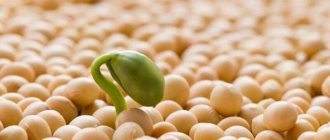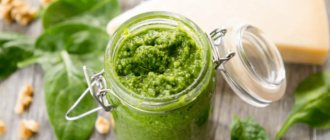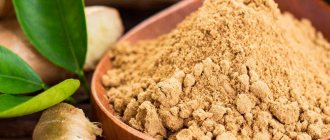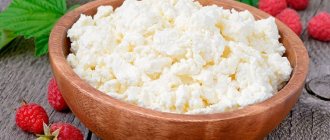Soy sauce: what is it, what is it made from?
Soy sauce is a popular culinary additive that has long been no longer associated only with Asian cuisine. Almost every modern housewife has used soy sauce at least once to prepare marinades, first and second courses, salad dressings and other sauces. It is almost impossible to find an analogue to the taste of soy sauce.
Soy sauce first appeared in Asian cuisine (China, Japan, India) and only in the 17th century did Europe learn about it. At its core, soy sauce is a fermentation product that occurs as a result of the fermentation of soybeans. This happens with the participation of a special fungus – aspergillus. The result is a liquid that is quite dark in color and has a characteristic mushroom aroma.
IMPORTANT: In modern cooking, there are several types of soy sauces and each has its own preparation process. The most important quality that a sauce should have is naturalness, which means that no chemistry is welcome in it.
Soy sauce has one advantage over other dressings and sauces - it contains glutamic acid. This is a natural component that can enhance and emphasize the taste of dishes: meat, fish, vegetables. In addition to all the advantages, it is also worth noting the low calorie content of the sauce, because it is only 50 kcal per 100 ml of sauce. Natural sauce (not obtained chemically) contains a large amount of monosaccharides and polysaccharides, as well as other trace elements.
Soy sauce is allowed to be consumed by those who adhere to a healthy diet and do not want to eat a lot of salt. Soy sauce becomes a dressing and seasoning for various dishes in small quantities, but in large quantities this sauce is simply not eaten. And it’s also worth remembering that excessive consumption of soy sauce can still be harmful to your health.
When choosing this product on a store shelf, carefully study the label and composition. The fact is that there are a lot of cheap fakes of soy sauce at the moment. Such “sauces” are made from salt, preservatives, flavorings and aromas. Natural sauce is always produced in small portions and only in glass bottles. Natural sauce is always transparent and will not have any sediment at the bottom.
IMPORTANT: Natural healthy sauce will never contain “E” additives, vinegar, yeast, sugar and other preservatives, but should only contain soy and salt. Another secret to determining the quality of the sauce is its rich protein content (at least 5-6 g). Natural sauce will be much higher in price than its artificial counterpart.
Soy sauce is a product of soybean fermentation
Kinds
There are literally hundreds of types of soy sauce. The varieties depend on the ingredients used, the method used to create the sauce, and the region in which it is produced.
Most often in our grocery stores you will see such soy sauces as:
- light;
- dark;
- low sodium;
- tamari.
Light soy sauce is a light but not clear brown liquid. This is the type that most people call "regular" soy sauce. This is a good all-purpose seasoning.
Dark soy sauce - caramel (sugar color, E150) is added to it after a longer fermentation process, this slightly thickens the sauce and gives it a slightly sweet taste and complex aroma.
Low sodium – produced primarily by a chemical method that does not use bacterial and fungal cultures and therefore requires less salt.
Tamari - This Japanese form of soy sauce is made only from soybeans, without wheat or other grains. Tamari has a very clean taste and is preferred by those who need a gluten-free diet.
Composition of real soy sauce: description, ingredients
As already mentioned, soy sauce in moderation can provide great benefits to a person. The reason for this is the rich composition of many microelements. natural soy sauce has nothing but fermented soybeans, water and salt. Consequently, the chemical composition of the product will be very similar to that of soybeans.
| Name of trace element in soy sauce | Benefits of the substance for the body |
| Vitamin B1 | Participates in all metabolic processes of the body: protein, lipid, water-alkaline |
| Vitamin B2 | Helps synthesize all substances in the body: vitamins, amino acids, fatty acids |
| Vitamin B5 | Helps body cells produce energy |
| Vitamin B6 | Helps break down amino acids |
| Vitamin B9 | In other words, “folic acid” is a fighter for the health of the reproductive organs and good mood. |
| Vitamin PP | In other words, “nicotinic acid” is involved in the body’s metabolic processes, carbon and protein metabolism. |
| Kholin | Regulates the functioning of the nervous system |
| Sodium | Regulates water-salt metabolism |
| Potassium | Regulates the amount of fluid in tissues |
| Phosphorus | Nourishes the skeletal system and strengthens it |
| Calcium | Supports healthy bones and teeth |
| Magnesium | Participates in metabolic processes, helps other substances be absorbed |
| Iron | Increases hemoglobin in the blood |
| Selenium | Improves the condition of hair, nails and skin |
| Zinc | Essential for the health of the reproductive organs of men and women |
| Copper | Regulates the functioning of the gastrointestinal tract, improves blood quality, as well as the functioning of the nervous system |
| Amino acids | Keeps the human body young and healthy |
What is soy sauce made of?
Which product is better to use?
Both of these products are beneficial only in moderation , but are harmful to people suffering from specific cardiovascular diseases, as well as kidney or stomach diseases. Based on this, you can understand that there is no point in replacing soy sauce with salt. It is best to consult a doctor . Only a nutritionist, based on the characteristics of the human body, prescribes the appropriate diet and necessary treatment.
However, there are several general recommendations that will help people reduce the load on the body and not deny themselves anything:
- Reducing the daily consumption of seasoning will help a person maintain the functioning of various body systems at the proper level.
- Good quality soy sauce is expensive . When choosing between its cheap analogue and salt, you should choose to use the second product in moderation.
- You should diversify your daily diet and consume different foods in different quantities. Then the body will stop demanding the missing vitamins.
- It is worth reducing the use of spices, herbs and salt . Over time, the natural taste of food will become richer and more enjoyable.
Soy sauce: benefits and harms for men and women
Soy sauce is rich in antioxidants, which have a positive effect on the entire body, prolonging its youth and improving health. Another property of antioxidants is to “slow down” cell aging and fight cancer. Therefore, we can safely say that by consuming soy sauce, you will have a comprehensive effect on your body: headaches will go away, blood pressure will normalize, eliminate insomnia, ease muscle spasms, reduce swelling and relieve fatigue after physical exhaustion.
INTERESTING: It is important to note the presence of phytoestrogens , substances extremely useful for women, especially those experiencing hormonal surges: menopause, PMS, disorders.
Soy sauce contains a large amount of vegetable protein (about the same as that found in meat). This is good for those who are allergic to animal protein or for people following a vegetarian diet. However, this only applies to sauce that is not made chemically. Artificial soy sauce does not bring any benefit, but only gives taste sensations and harm.
On the other hand, soy sauce (like soy) contains substances such as isoflavones. They are known to negatively affect the quality and quantity of sperm in men. Therefore, to some extent, we can say that soy sauce is harmful to “men's health.” However, this is true when a person consumes it in excessive quantities.
IMPORTANT: Excessive consumption of soy sauce analogues is harmful because they contain a lot of salt, which disrupts water-salt metabolism in the body, provokes swelling in the extremities and an increased feeling of hunger during the day.
Does soy sauce benefit or harm the body?
Too much salt
The salt content in regular soy sauce is quite high, but, unfortunately, manufacturers do not indicate the amount on the labels. The examination showed the actual salt content in this product. As a result, in Tai-So - 5.6%, Sen Soy - 11.7%, Simple! - 11.9%, HEINZ - 12.9%, Doshirak - 14.5%, Yamasa - 14.6%, Kikkoman is the saltiest - contains 15% salt.
And finally, we cannot ignore the results of the organoleptic examination. The samples were evaluated for appearance and taste.
As for appearance, Kikkoman, Heinz, Sen Soy, “Simply!”, Yamasa are a dark brown liquid with a characteristic pungent aroma. Tai-So sauce has no aroma, while Doshirak has a harsh smell that is not typical for this type of product.
The taste of the samples varies slightly: Kikkoman, Heinz, Yamasa have a salty taste, Sen Soy, Doshirak, “Simply!” - salty, sweetish, at Tai-So - slightly salty, sweetish.
Article on the topic
Beef with potatoes Japanese style. Asian dinner from Anna Lyudkovskaya
Is it possible to eat soy sauce during pregnancy?
Pregnancy is a special situation for a woman, when she should be very careful and careful about her health. Very often, a pregnant woman’s body suffers from disturbances in water-salt metabolism, and this happens because the use of salt “inhibits” the release of fluid and it accumulates in the soft tissues.
It is quite possible to completely replace salt during pregnancy with soy sauce, which also has a pleasant taste and saltiness. Of course, we are talking only about a natural product without preservatives and chemicals. Natural soy sauce may well become a “healthy dressing” for salads and a seasoning for meat and other dishes.
You should choose the sauce with special attention, carefully studying the label. On the jar, look for the inscription “fermentation product” or “aging product.” Analogues of soy sauce should not be consumed during pregnancy, they can provoke disorders of the gastrointestinal tract, metabolism, cause poisoning and lead to swelling.
IMPORTANT: Natural sauce is also useful during pregnancy because it can saturate a woman’s body with essential vitamins and minerals, as well as antioxidants.
Is it possible to eat soy sauce during pregnancy?
Application in cosmetology – masks for face and hair
The product is often used in cosmetology. Due to its high antioxidant content, it slows down the aging process and makes the skin more elastic. The condition of the hair also improves.
Face masks: Soy sauce is used as a bleaching agent. Thanks to it you can get rid of freckles. To achieve whitening of the face, you need to wash your face with soy sauce in the morning and evening.
The seasoning helps get rid of acne. To do this, take 1 tablespoon of sauce, mix the liquid with the same amount of olive oil and fresh chicken yolk. This composition is applied to the face for 25 minutes, then washed thoroughly.
Hair mask: To improve the condition of your hair, mix 2 teaspoons of sauce with the same amount of olive oil. Beat the mixture with one egg yolk and distribute over the curls. Leave the mixture for an hour and wash off with regular shampoo.
Used for preparing salads, meat and fish dishes
Can I eat soy sauce while breastfeeding?
Just as during pregnancy, during breastfeeding a woman can use soy sauce and not fear for her health, only if it is a natural product. Of course, you shouldn’t do this in excessive quantities so as not to cause an allergic reaction in your baby, but soy sauce is not eaten in large quantities.
During lactation, you can prepare salad dressings from soy sauce, as well as add it to first and second courses. A few tbsp. sauce is the permissible amount of product per day, only on the condition that it is natural, without preservatives and chemical impurities.
IMPORTANT: Please note that natural soy sauce cannot have any flavor impurities: mushrooms, shrimp, garlic, and so on.
Can I eat soy sauce while breastfeeding?
Tips for choosing a sauce: avoiding fakes
- Compound. No dyes or preservatives are added to the product, made naturally. The mixture itself acts as an antiseptic, so it does not spoil for a long time. In this regard, the product should contain only 4 sub-items: soybeans, wheat/barley, water and salt. Any other impurities and flavor enhancers prove that you are being offered a fake. The sauce may have been made using hydrogen chloride to speed up the breakdown of proteins.
- Taste and color. Soy sauce has a rich smell and taste. Products that have been prepared using chemicals to speed up fermentation have neither odor nor rich taste, so artificial enhancers must be used to create the desired effect. They add a chemical taste to the sauce. In addition, all amplifiers are indicated in the composition. Pay attention to the color too, as it should be almost transparent, but with a red-brown tint. An overly dark mixture was most likely prepared artificially.
- Tara. The natural product can only be stored in glass containers. In plastic, for example, the real mixture will quickly deteriorate, so all packaging made from other materials contains a fake.
Soy sauce for children: at what age can it be given?
Soy is often present in baby food from an early age (in some infant formulas) and therefore the question of whether soy sauce can be given to a child is very relevant. The fact is that this sauce is rich in protein and useful microelements and therefore it can be given to children aged 1.5-2, but in small portions.
IMPORTANT: Soy sauce can easily replace salt for a small child, which is harmful to the “young” body. But we are talking only about natural sauce, and not one that has chemical additives.
Is it possible to give soy sauce to a child and at what age is giving soy sauce harmful to the baby’s health?
Is it possible to eat soy sauce if you have pancreatitis?
Pancreatitis is inflammation of the pancreas. This disease requires a person to strictly adhere to nutritional diets in order not to experience discomfort and not cause complications. Nutritionists around the world assure that this product should completely replace salt and mayonnaise. However, with pancreatitis, pay attention to the following nuances:
- The sauce is quite salty and sour and salty . It is this quality that directly affects the gland, enhancing its work and stimulating it. The pancreas begins to secrete secretions, which is not very good, because excessive consumption of sauce will provoke poor health.
- It is not natural soy sauce that can harm your health, but a “chemical analogue”, since it may contain vinegar and hot spices that are harmful for pancreatitis. These ingredients can irritate the gastrointestinal mucosa and aggravate the patient's condition by intensifying the inflammatory process.
- Salts, preservatives, dyes and carcinogenic substances, which are abundant in soy sauce analogues, can have an extremely negative impact on the health of a person suffering from pancreatitis. This product should be avoided.
IMPORTANT: You should absolutely not consume soy sauce if you have acute pancreatitis. You should also exclude the sauce if the disease worsens. You can eat food with soy sauce only when the disease is in remission. If you feel nausea, stomach pain or other unpleasant symptoms, avoid using this product.
If you consume soy sauce in small portions and always tolerate it well, you can add small amounts to your food. Each time you use sauce, reduce the amount of salt you add or eliminate it altogether.
Is it possible to eat soy sauce if you have pancreatitis?
Soy sauce: does it have salt, can you eat it instead of salt?
Modern people are aware that consuming salt is harmful to health. Therefore, many people very often replace this ingredient with soy sauce, which, in addition to all its pleasant taste, also has a saltiness. The sauce is a product of fermentation of soybeans in salt water.
IMPORTANT: This is why sauce is often used as a “healthy” replacement for salt. Its peculiarity is that it emphasizes the taste of any dish and a person simply does not feel the need to additionally season food.
general information
In order to fully understand the value of salt and soy sauce, it is necessary to refer to the history of these products.
It is known to have been used in ancient times BC . The first large salt production workshops were found in Western and South-West Asia, as well as Europe, on the coast of what is now Bulgaria. Even then, salt was highly valued by people and was expensive. Today, salt, as an additive that can improve taste, is used in every dish.
Soy sauce
It was first invented in ancient China , then it took a strong place in the hearts of Europeans. And only 15 years ago, when Chinese food began to enjoy well-deserved popularity in Russia, consumers tried a dark liquid that, like a magic potion, transformed many dishes.
Salt or soy sauce: which is better?
Answering this question, it should be noted that salt is a harmful product, since it contains a minimal amount of minerals and often a modern product (for example, “Extra” salt) has no microelements at all. In turn, soy sauce has a rich chemical composition: proteins, fats, carbohydrates, vitamins, minerals and amino acids. That is why replacing salt with sauce is much healthier for any person, if we are talking about natural sauce.
Soy sauce is much healthier than salt and should be added to food
Sea kale
Kelp itself has a salty taste, so it is considered one of the best salt substitutes. It is especially suitable for a diet, as it is a low-calorie product. In addition, it contains a number of useful vitamins and microelements.
By the way, the menu may contain seaweed not only fresh, but also dried.
Soy sauce - can you be allergic to it: symptoms
An allergy to soy sauce may be because legumes often provoke a negative reaction in people who are extremely sensitive to this ingredient. Soy sauce should be consumed in small portions, 1-2 tbsp. per day for an adult will be quite enough. If you experience any discomfort, you should avoid soy sauce:
- Pain and spasms in the gastrointestinal tract
- Sore throat and itching
- Drowsiness, dizziness
- Nausea and vomiting
- Swelling
Causes of an allergic reaction to soy sauce
Product contraindications
You won't be able to refuse this product at all. Nutritionists say that some amount of salt is contained in almost any product (cheese, sausage, canned fish, tomatoes, cucumbers, including canned ones). The daily intake ranges from 3 to 10 grams per day per person. But most often a person abuses this product, which causes health problems:
- Deterioration of kidney and heart function.
- Metabolic disorders, due to which the patient will quickly gain unnecessary weight.
- Impaired functioning of the gallbladder, pancreas and liver.
- Development of hypertension.
Soy sauce
You should also be careful with soy sauce, since it also contains salt . The daily norm that you need to adhere to is a couple of tablespoons per day . Despite the impressive list of advantages, there is no guarantee that the use of this product will not have a negative effect on the body of a healthy person. Here are a few specific contraindications:
- Soy sauce is contraindicated for pregnant women . It contains isoflavonoids, which are similar in composition to female sex hormones and negatively affect the development of the fetus and its gestation.
- Nutritionists do not advise children under 14 years of age , because an increased level of soy in the body will lead to problems with the thyroid gland.
Is it possible to eat soy sauce while losing weight, how is it useful for losing weight?
For weight loss, soy sauce is useful because it helps regulate the body's metabolic processes. Amino acids and minerals in soy sauce speed up metabolism, which improves the absorption of nutrients from food and the removal of toxins.
In addition, there is not much salt in the sauce, and by consuming it, you will benefit your body more than if you ate salt. The sauce will not cause the soft tissues of the body to “retain water” (as happens with salt) and cause swelling.
IMPORTANT: Soy sauce is an important ingredient for preparing dietary salad dressings. This way you can completely give up mayonnaise and lose weight “correctly”, avoiding junk food.
Soy sauce is an excellent dressing for diet salads
Which soy sauce is better to buy, which is the best, how to choose gluten-free?
Gluten is a substance contained in wheat grains, and therefore a sauce containing gluten can be safely called an analogue of a real natural product. In addition, gluten is a strong allergen and therefore should be avoided by people with hypersensitivity to pathogenic allergens.
IMPORTANT: Carefully read the label on the bottle of soy sauce, studying its composition. Natural, and most importantly, healthy sauce will not contain additional chemicals and preservatives, as well as flavor enhancers.
How to make your own soy sauce at home: recipe
Homemade soy sauce is, of course, different from what you can buy in the store. However, this way you will be sure that you are using a healthy sauce without preservatives or food “chemical” additives.
You will need:
- Soybeans – 100-120 g (or soy powder)
- Butter – 1-2 tbsp. (without plant impurities)
- Mushroom broth – 50 ml.
- Wheat flour – 0.5-1 tbsp.
- Salt – a few pinches (it is advisable to use sea salt).
Preparation:
- Pour the beans with a small amount of water and set to cook, cook until soft, and then grind thoroughly with a blender.
- Add all other ingredients
- You can also add 1-2 cloves of crushed garlic











